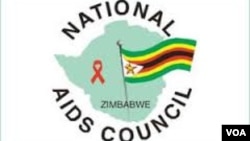The National AIDS Council (NAC) says plans to decentralize funding of HIV/AIDS programs to Zimbabwe’s districts are at an advanced stage.
NAC finance director, Albert Manenji, says decentralization will help people living with HIV to receive treatment early and through local institutions that receive and store their health records.
The council is currently running orientation meetings in Masvingo province where representatives from its 85 districts are being introduced to the plan.
This year the council set aside $5 million to support various HIV prevention interventions throughout the country.
Each province will benefit from $500,000 the NAC will distribute to regions that will in turn distribute the funds to districts to meet their specific needs based on locally-driven plans.
The major focus of the programming at district level, which is based on plans that have already been received, show that there will be a major focus on youth related activities in order to prevent new infections among young people.
This is based on evidence that shows that new infections are high among young people between the ages of 15 and 24, particularly young girls.
Workplace programs have also been prioritized and these will cover both the formal and informal sectors of the economy.
Manenji says the plan is not new but implementation had been delayed due to a number of issues.
In a statement, the National AIDS Council said should these be implemented as planned, it will indeed make huge strides towards achieving the global targets 90/90/90 by 2020.
The target refers to three key steps that are essential to both better health and care for HIV positive people and in limiting new infections and the further spread of the HIV pandemic.
According to this target, 90% of all people living with HIV should know their status, 90% of all those who are diagnosed HIV positive to be on sustained antiretroviral treatment (ART) and 90% of those on ART having an undetectable viral load.





